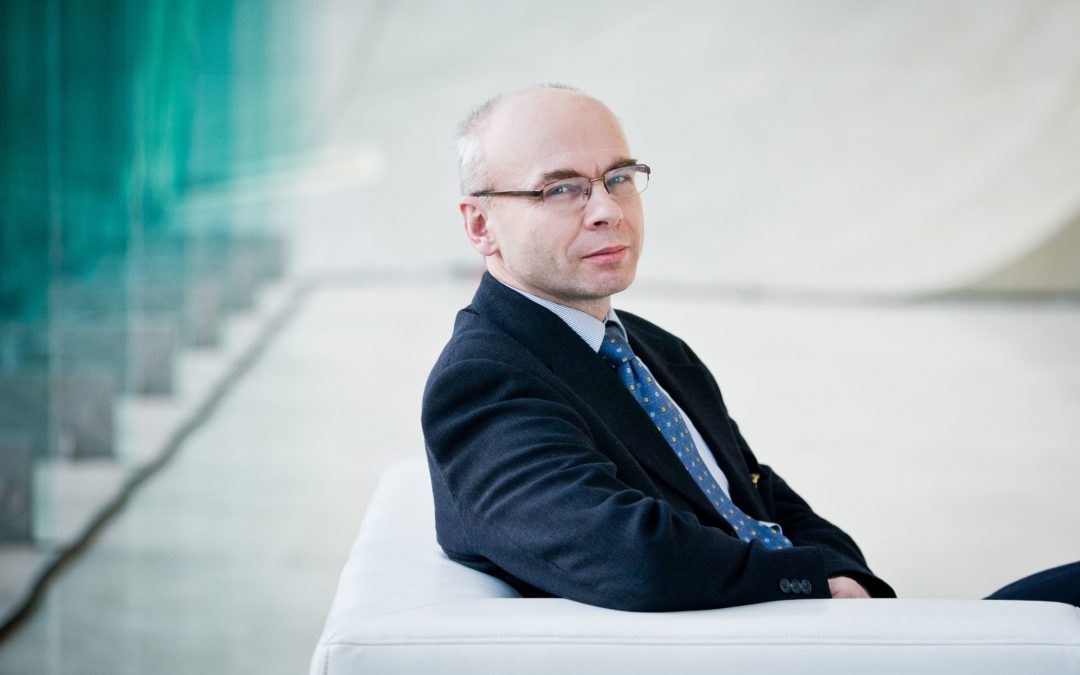Dariusz Stola, former director of the Polin Museum of the History of Polish Jews, has announced his resignation from candidacy for reappointment – despite winning an open competition to continue – after a long standoff with the Ministry of Culture.
In May 2019, Stola was recommended by the competition committee with the support of the City of Warsaw and the Association of the Jewish Historical Institute – the co-founders of the museum together with the ministry. Since then, culture minister Piotr Gliński has refused to formalise the committee’s recommendation, leaving the world-renowned museum without a director.
In today’s announcement, reported by OKO.press, Stola emphasised his rights as winner of the competition, describing his decision as motivated by pragmatic concern for the museum’s future: “Seeing the damage inflicted on the museum and the threat now facing it, I am prepared to accept conditions that would allow the crisis to be brought to an end.”
At the same time, he accused Minister Gliński of “justifying his refusal with false pretexts”, “blatantly breaking the agreement between the founders”, and potentially of acting in breach of the law.
To justify his position, Gliński had accused Stola of “pursuing very aggressive politics”, which “damaged the institution”. He claims the director refused to agree to the organisation of a conference dedicated to Lech Kaczyński, the deceased Polish president and brother of ruling party leader Jarosław Kaczyński.
The museum denied these accusations, insisting that Stola had been open to the idea and had often underlined Lech Kaczyński’s role as an early supporter of the institution.
The culture minister has confirmed he is refusing to approve the reappointment of the director of @polinmuseum for political reasons, and says he may never do so.
He accuses Stola of 'pursuing very aggressive politics', which 'damaged the institution' https://t.co/63on5iKzcs
— Notes from Poland ?? (@notesfrompoland) September 25, 2019
Stola is a highly-regarded historian of the Holocaust and Polish-Jewish relations. Under his leadership, the Polin Museum garnered both domestic and international praise, winning the European Museum of the Year Award in 2016.
In recent years, the museum has witnessed gathering attacks from right-wing circles, especially after a temporary exhibition on the communist “anti-Zionist” campaign of 1968 drew attention to antisemitic rhetoric in present-day Poland.
The failure to reappoint Stola has drawn widespread condemnation in Poland and abroad. Donors in the United States and Israel reportedly withheld funding in response to the uncertainty. Journalist Masha Gessen wrote in The New Yorker that Poland’s ruling party had put “probably the most ambitious and successful new museum in Eastern or Central Europe in a decade into limbo”.
Jewish donors have suspended hundreds of thousands of dollars in support for the Polin Museum in Warsaw over 'anxiety' regarding the Polish government's refusal to sign off on an extension of the director's term since it was approved two months ago https://t.co/0ASe0RHNlH
— Notes from Poland ?? (@notesfrompoland) July 16, 2019
The apparently politically motivated action to force Stola out forms part of the ruling party’s broader takeover of cultural institutions. Among others, the Museum of the Second World War in Gdańsk and the National Museum in Warsaw have seen directors replaced in controversial circumstances.
In the case of the Gdańsk museum, Paweł Machcewicz – like Stola a respected historian – was replaced by a lesser-known figure with right-wing connections. Under the new management, the WWII museum has changed some aspects of its main exhibition to fit a more national narrative, altering the international approach of the museum’s creators.
Main image credit: M. Starowieyska/Muzeum Historii Żydów Polskich

Stanley Bill is the founder and editor-at-large of Notes from Poland. He is also Professor of Polish Studies and Director of the Polish Studies Programme at the University of Cambridge. He has spent more than ten years living in Poland, mostly based in Kraków and Bielsko-Biała.
He is the Chair of the Board of the Notes from Poland Foundation.




















